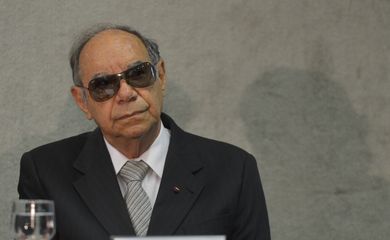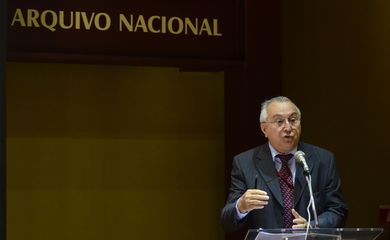Tribute paid to journalist killed during military dictatorship


The journalist was tortured and killed by the military dictatorship on October 25, 1975. 

The Catedral da Sé, in São Paulo, hosted Sunday (Oct. 25) an interfaith tribute to journalist Vladimir Herzog, tortured and murdered by the military dictatorship in October 25, 1975, 40 years ago. The event brought back memories of the celebration held six days after his death, which drew 8 thousand people protesting at the same cathedral against the atrocities committed during Brazil's period of military rule (1964 – 1985).
Approximately 800 singers from 30 choirs took part in the ceremony singing a song that became a symbol of resistance to the dictatorship at the time. After that, an ecumenical act was staged, which the Vladimir Herzog Institute described as “a multicultural prayer in just one voice.”
Widow Clarice Herzog declared that her feelings towards the ceremony were those of someone witnessing a victory for society. “The pain, the outrage, the hatred I felt 40 years ago moved me to do something. I had to prove to society that Vlado [as he was referred to affectionately] had been murdered, and I did it,” she said.
She believes the death of Herzog—who was also known outside Brazil, was a professor at the University of São Paulo, and the director of a news program—weakened society and helped make people realize they should rise against the dictatorship.
“[The military] had so much power that they [thought] they could do anything, because there was no resistance and nothing happened,” Clarice Herzog argued. She noted that murderers remain unpunished to this day. “Our current army should be honorable and brave enough to declare who [the torturers] were, so the military's credibility could be restored,” she said.

Ivo Herzog
“Police violence killed my father, and police violence is still killing thousands of people from the outskirts of big cities [in Brazil]. This simply cannot be tolerated,” declared Ivo Herzog, son of the journalist, who was nine when his father was killed.
Translated by Fabrício Ferreira
Fonte: Tribute paid to journalist killed during military dictatorship




